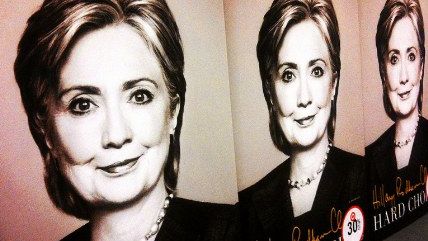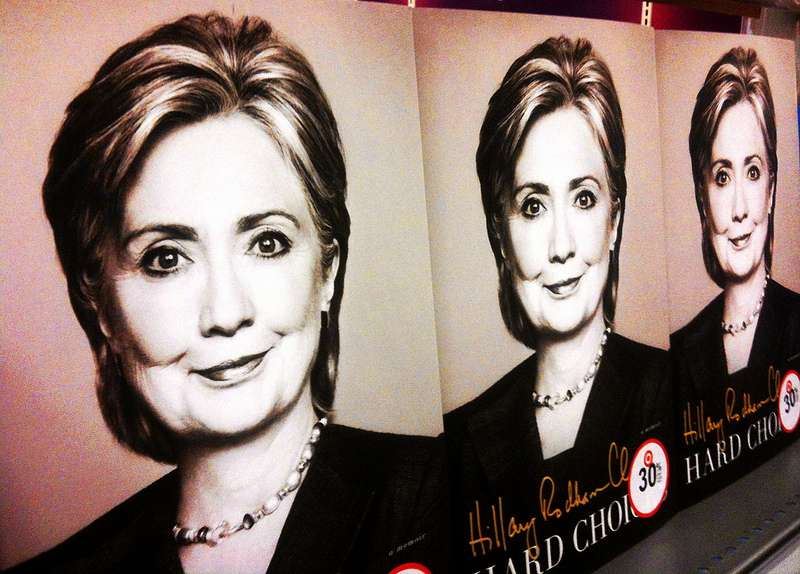Our Presidential Cycle Shows Why Citizens United Was Decided Rightly
All this money is being spent, yet the "establishment" is very much on the defensive.


Among the many narratives emerging from this year's presidential race is the parade of pratfalls—a very expensive parade—that appears to be Jeb Bush's candidacy. Bush and the PACs supporting him have far outspent all other candidates on advertising, and for what? He's polling terribly and Iowa and slightly better in New Hampshire. They've spent almost $50 million on advertising and have failed to catch fire with Republican primary voters so far. (I personally have taken to describing Bush based on his debate performances as what you'd get if Lisa Simpson grew up to be a Republican.)
Today, by the way, is the sixth anniversary of the pivotal Citizens United v. FEC Supreme Court decision, which struck down regulations restricting outside spending and advertising to influence elections by corporations, nonprofits, labor unions, and other groups.
But for enemies of that decision, the only word that matters is "corporations." Today on the anniversary, the hashtag #CitizensUnited trended for a little while on Twitter, and it caught my attention when Democratic Rep. Jared Polis of Colorado posted several tweets condemning the decision, calling for it to be overturned and complaining about the drastic increase in spending on elections from outside sources.
I interviewed Polis for Reason a couple of years ago because, though he is a Democrat, he leans libertarian in many areas, including in tech freedom and privacy, marijuana legalization, school choice, and a lot of free market issues, and regularly engages with libertarians (including libertarian-leaning congressmen on the right like Justin Amash and Thomas Massie). On this issue, though, he is insistent that money isn't speech.
A funny thing I noticed when checking out the hashtag: All the top posts that aren't originating from progressive activist sources are from incumbent legislators complaining about "dark money" "buying elections." Recall that the Citizens United case is based on a documentary that was critical of Democratic establishment candidate Hillary Clinton. If elected, Clinton wants to make sure incoming Supreme Court judges would overturn the decision.
Polis, by the way, is one of the richest members of Congress. He earned his money in the private tech market developing e-commerce tools. That money helped him in 2008 to beat an establishment-backed candidate in the primary to land his seat. He also, according to the Washington Post, spread his money around to "outside groups" to help get other Democrats elected.
Now, in 2016, the establishment in both parties is in disarray and outside groups are partly to credit—or to blame, depending on where you sit. (And guess where you sit if you are an incumbent legislator?) If you value actual competitive presidential and congressional elections, I cannot imagine how you can look at the field in 2016 and think the Citizens United decision was a bad thing and think that money is itself going to determine the outcome of the elections. What it has done has helped "outsider" candidates help challenge the establishment.
Consider the candidacies of Sens. Marco Rubio and Ted Cruz. Set aside whether or not you approve of them or want them to win the primary or the presidency. Each of them ended up in the Senate by winning contested primaries against established, better-known Republican figures. They did so with the help of outside support and funding to help overcome the financial disadvantages that come from being challengers.
Now the two of them are seriously in the mix as potential presidential nominees. If that assistance were banned, would they be where they are now? What would that mean for the make-up of the race? We would have Donald Trump, who like Polis, is running with the help of his own wealth (though he is also getting donations). We may still end up with Trump, giving his polling, but we'll have to see.
We also have outside campaigns gathering money and spending it for the purpose of opposing Trump, though what Republican operative Liz Mair is doing is a little bit different from what Citizens United has authorized. She has set up a limited liability corporation so that conservatives and Republicans can donate to their efforts without having to be identified. Nevertheless, what Citizens United has actually accomplished is opening up the political marketplace to greater numbers of challengers. But as Bush's flailing shows, money coming from outside sources is not the only determinant of success. It helps people hear your message. It doesn't make them care.
Polis complained on Twitter that anonymous election spending has skyrocketed from $10 million to $300 million. That sounds big as a flat number, but keep in mind that's the cost of making a single summer movie. Frankly, if elections are supposed to be so important, shouldn't they be of greater financial impact that a chapter of Pirates of the Caribbean?
Ultimately, we should see attacks on the decision by the likes of Polis the same way we see efforts by unions to drive up the minimum wage. These are protectionist efforts meant to keep outsiders from competing. It will cost a lot of money for Republican opposition in Colorado to attempt to fight against what Polis has accomplished. He wants to make it harder to do so. So do all the other incumbents demanding campaign spending restrictions. They know full well it will give them the upper hand and make it harder to challenge them.


Show Comments (115)